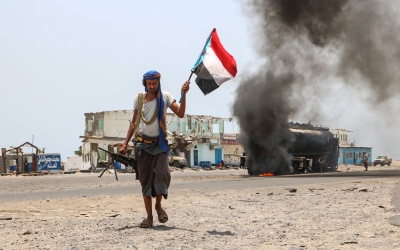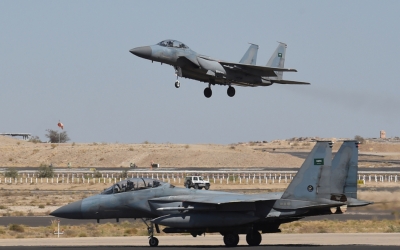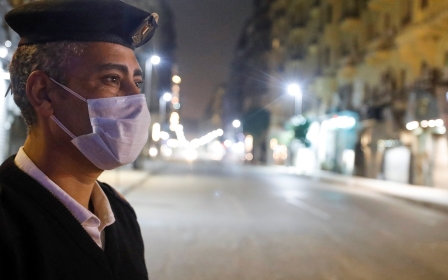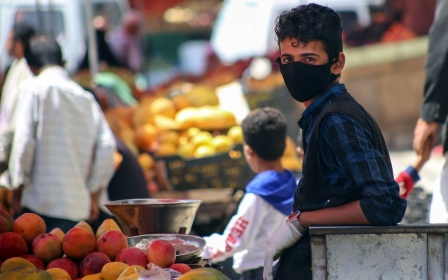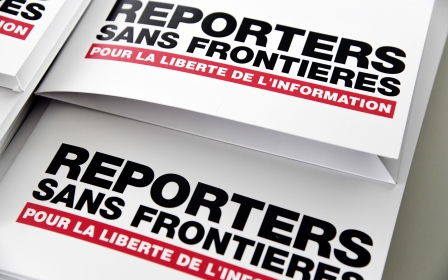'Green light to abusers': HRW calls on France to halt arms sales to Saudi Arabia and Egypt
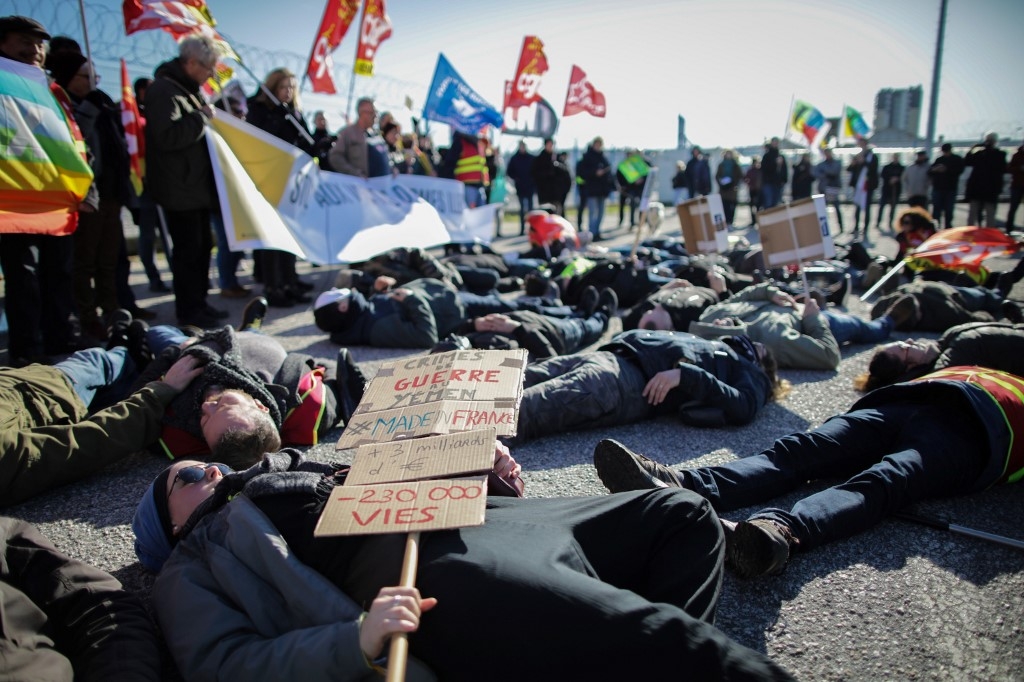
Human Rights Watch has called on France to halt arms exports to Saudi Arabia and Egypt, accusing the European country of fueling "atrocities against civilians".
The call came on Wednesday after the release of France's latest report on arms exports, which showed that Qatar, Saudi Arabia and Egypt - in that order - received the country's biggest weapons contracts.
New MEE newsletter: Jerusalem Dispatch
Sign up to get the latest insights and analysis on Israel-Palestine, alongside Turkey Unpacked and other MEE newsletters
According to the report, France's arms sales and transfers to Saudi Arabia in 2019 amounted to about $1.6bn, while those to Egypt were $1.1bn.
HRW said the figures "illustrate the profound contradictions of French diplomacy".
"Providing arms to countries repeatedly implicated in serious abuses, including possible war crimes, contradicts [France's] goal to be seen as a global leader for human rights values," HRW said in its statement.
France accounted for 7.9 percent of global arms exports between 2015 and 2019 - a 72 percent increase from the previous five years - according to a report released in March by the Stockholm International Peace Research Institute (SIPRI).
Saudi-led war in Yemen
Meanwhile, Saudi Arabia has emerged during that same time period as the world's largest arms importer, SIPRI said.
HRW also highlighted the kingdom's role in the war in Yemen, citing Riyadh's "gross and widely documented violations" against international humanitarian law.
Since 2015, Saudi Arabia has led a military campaign in Yemen against the country's Houthi rebels, seeking to restore the government of exiled President Abd Rabbuh Mansour Hadi.
The conflict, which the United Nations cites as the cause of the world's worst humanitarian crisis, has killed tens of thousands of people and brought the already impoverished country to the verge of famine.
As the war continues to rage, 13 million Yemenis are facing starvation.
Egypt's government crackdown
In regards to Egypt, HRW called France's arms sales to Cairo "shocking and appalling".
The group said it had documented "serious abuses and war crimes" committed by the Egyptian army during operations in Northern Sinai.
"Under President Abdel Fattah al-Sisi, Egypt has been enduring the worst crackdown on basic and fundamental rights in decades," HRW's statement said.
In October, Amnesty International released a report indicating that French-built armoured vehicles were used by Egyptian government forces to "disperse protests and crush dissent" in crackdowns from 2012 to 2015.
France, Russia and Germany have all dramatically increased their weapons sales to Egypt in recent years.
'Green light to abusers'
HRW said France's decision to continue selling arms to Saudi Arabia and Egypt not only helps them physically carry out rights offenses, but legitimises their actions by giving "an effective green light to abusers".
Arms sales to the two countries "undermine France's credibility in its role promoting international law and universal human rights values at a time when they face serious attacks around the world," the statement continued.
"It is more than urgent and necessary for France to reconcile its deeds with its words, and stop fueling terrible rights abuses with its arms sales".
Global weapons sales to the Middle East have been increasing for years. As Saudi Arabia emerges as the region's biggest arms buyer, the United States is overwhelmingly its largest exporter.
According to Sipri, between 2015 and 2019, total US arms exports were 76 percent higher than those of the second-largest arms exporter in the world, Russia.
Half of all US arms sales during that period went to contracts in the Middle East, and half of those went to Saudi Arabia.
Last month, top US Senate Democrat Bob Menendez warned that Secretary of State Mike Pompeo had been pursuing another arms deal with Saudi Arabia despite last year's deal receiving vehement bipartisan opposition.
Middle East Eye delivers independent and unrivalled coverage and analysis of the Middle East, North Africa and beyond. To learn more about republishing this content and the associated fees, please fill out this form. More about MEE can be found here.


